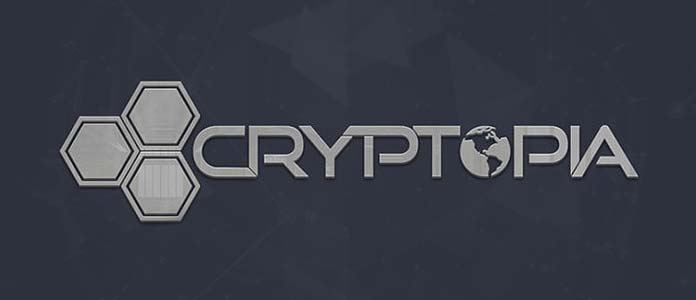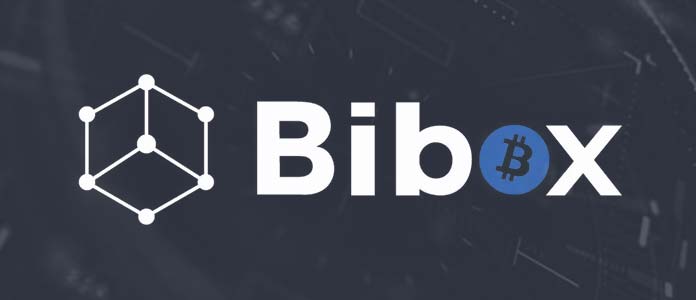Cryptocurrency Investing
Top 7 Most Recommended Cryptocurrency Wallets For Storing Bitcoin
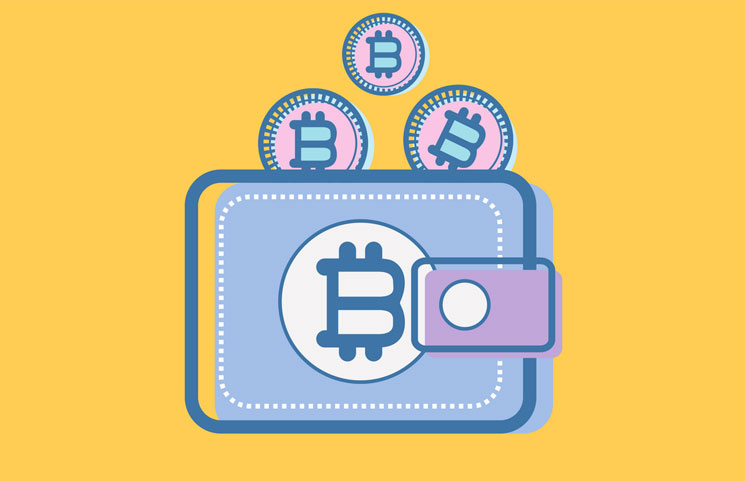
Recommended Cryptocurrency Wallets
The rapid growth in the world of cryptocurrencies is constantly expanding, bringing in more users every day, thereby making the crypto space more interesting than ever. Many interesting use cases of the blockchain technology are erupting, resulting in new altcoins emerging in the market every now and then.
However, cryptocurrencies being digital in nature often expose users to digital attacks, the like of what was experienced in the almighty Mt. Gox hack, also the recent brutal attack experienced by most of the users of the popular MyEtherWallet
The question of why you should purchase a wallet becomes the more pertinent question of which wallet should a cryptocurrency investor use. As do all forms of insurance, security comes at the cost of money and convenience. How should we balance it in a way that suits our risk profile?
Table Of Contents
With the constant increase in the number of coins and tokens, the need for a safe and secured wallet to store these digital assets is on the high demand. From experiences, sometimes ease-of-use may come at the cost of security, while additional features may come at the cost of a steeper learning curve. Getting to know the best few ones for a wide variety might to time consuming and tedious.
An all-in-one package wallet does not exist. It is important that you manage to find the wallet that addresses your greatest concern, be it security from theft, ease of transfer, convenience, monetary cost, or even style. A wallet may turn out to be your greatest investment decision, financial wise and emotional health wise. Therefore, in this write-up, we educate you on the criteria for selecting the very good ones.
Top 4 Features To Check Before Using
Also, we give a list of the recommended ones based on their features and users’ experiences.
-
Security:

The number one feature to check in any wallet is its security. You need to check if the company has a track record of security excellence. The recent research has shown that some of the wallets that were claimed to be secure are actually vulnerable to hacks. An example is a recent discovery made by a 15-year old young boy on the Ledger Nano S wallet.
-
Convenience:

It is essential for the wallet to be convenient to use without sacrificing any security protocol of the wallet. Users must make sure there is no complexity in the usage of the wallet from the start on transaction till it ends. Most times, it’s often difficult to get a secured wallet without wasting too much time on security verifications and validations before gaining complete access to funds on-the-go.
-
Cost:

Depending on the user’s purchasing power, the user needs to carefully select the wallet that goes with the budget without compromising the security of the wallet or blindly going for a wallet with bad users’ review just for being cheap. Always be careful of cheap things!
-
Mobility:

The wallet should be accessible anytime anywhere you need it.
Best Recommended Cryptocurrency Wallets
Below are some of the recommended wallets users can get out there:
Trezor
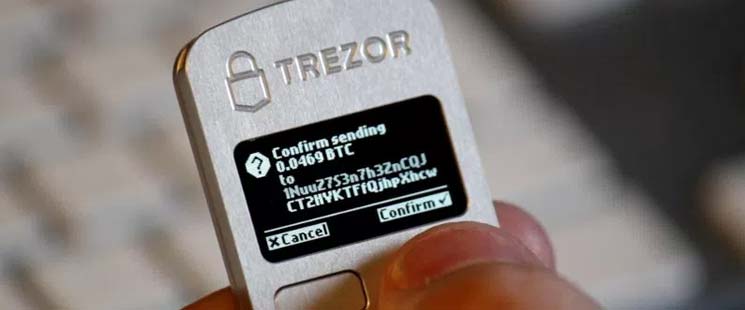
Trezor was the first cryptocurrency hardware wallet ever developed that sets the gold standard for crypto-wallets’ security. It is manufactured by SatoshiLabs, a Czech Republic-based company operating since 2013.Trezor has a reputation for providing top-notch security, protecting against both virtual and physical theft.
It is a small flash drive-like device with an OLED screen that connects to the phone or PC via a USB which you can also use to sign cryptocurrency transactions in an offline environment. Trezor is available in white, gray, and black color options, and it supports more than 10 cryptocurrencies and thousands of ERC20 tokens. Trezor supports the Windows, Mac and Linux Operating Systems, and it currently costs about $110 USD.
When using a cold storage hardware wallet like the TREZOR, your funds are stored offline and transactions can’t be tampered with. Cold storage refers to any type of wallet that is stored offline, independent of any internet connection, and the private key is controlled by the owner. Because of this feature, it cannot be hacked remotely. These funds can only be accessed and verified physically on the embedded screen by the wallet owner with the appropriate password information.
Even if your PC is compromised with malware, your private keys will still be safe with Trezor. In this sense, Trezor is more of a vault than a wallet.
At this moment TREZOR supports the following coins:
- Bitcoin
- Litecoin
- Dash
- Zcash
- BCash
- BGold
- Ethereum
- Ethereum Classic
- Expanse
- UBIQ
- NEM
- Namecoin
- Dogecoin
- All ERC-20 tokens
In case an unforeseen event arises where you lose or damage your TREZOR device, you can recover your funds by using your TREZOR seed and a seed compatible wallet. Some of the compatible wallets include:
- ArcBit for iOS devices
- Copay compatible with Linux, Windows, OSX, Android, and iOS devices
- Electrum for Linux, Windows, OSX, and Android devices, using a manual recovery manual
- Mycelium for only Android devices using a manual recovery.
KeepKey
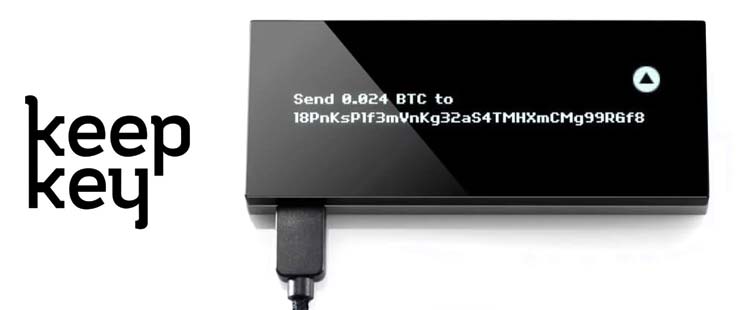
KeepKey is another secure hardware wallet launched in 2015. It comes in a polished design, due to its effectiveness, it is said to be a port of Trezor’s code and firmware, so their main difference is the material.
As a Hierarchical Deterministic (HD) wallet, KeepKey can be thought of as a miniature computer designed specifically for storing private keys. As an HD wallet, KeepKey allows you to generate and store an unlimited number of private keys.
KeepKey integrates with the wallet software on your computer by taking over a private key generation, private key storage, and transaction signing.
KeepKey wallet enables the storage and transaction of a variety of cryptocurrencies, including:
Like the TREZOR, it is also easy to setup, and it comes with more advanced features. Also, KeepKey integrates with the wallet software on your computer by taking over a private key generation, private key storage, and transaction signing. Users can also recover funds should in case the device is missing, using the following compatible wallets:
- Electrum
- MultiBit
The device works perfectly with Windows, Mac, Linux, and Android. However, the Keepkey wallet might be a little on the heavy side and hence more susceptible to drops.
Currently, the cost of getting a keepkey is about $100 USD.
Ledger Nano S
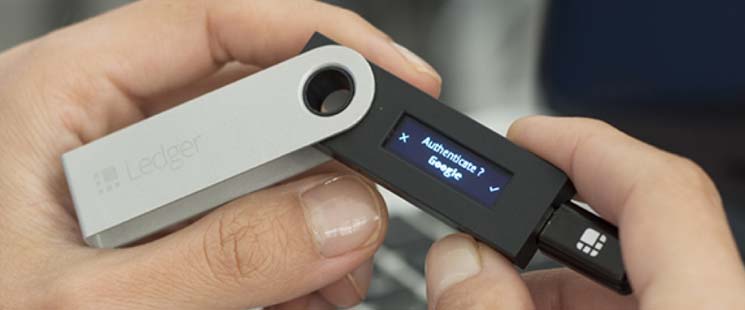
Ledger has been creating hardware for Bitcoin security since 2014. It is a very popular HD wallet crafted with love in France, a European country well-known for its art and design aesthetics. It is a very sleek flash drive-like device. It also comes with an OLED screen for easy handling and two side buttons for confirming transactions. In order to confirm a payment, you need to physically press both buttons at the same time, making it a hack-proof device.
The Nano S also lets you create backups of your wallet by writing down a 24-word phrase on the paper that comes with the device out of the box. This phrase can be used to recreate your wallet in the event that your Nano S is lost, damaged or stolen.
Also, the screen provides an extra layer of verification when sending payments, to confirm that the payment you’d like to send is for the correct amount and to the right address.
The wallet comes at a price of about $70 USD and works well with Windows, Mac, and Linux operating systems. The Ledger Nano S is also compatible with Electrum and Mycellium wallets.
Unlike other hardware wallets, the Ledger Nano S wallet supports much more cryptocurrencies including:
- Ark
- Bitcoin
- Bitcoin Gold
- Bcash
- Dash
- Digibyte
- Dogecoin
- Ethereum
- Ethereum Classic
- Expanse
- Hcash
- Komodo
- Litecoin
- NEO
- PIVX
- PoSW
- Qtum
- Ripple
- Starts
- Stealthcoin
- Stellar
- Stratis
- Ubiq
- Vertcoin
- Viacoin
- Zcash
- ERC20 tokens
Exodus

Exodus is a very popular multi-currency software wallet that provides a client interface for you to access and transfer your cryptocurrency holdings. It was officially launched on July 29, 2016, the Exodus wallet is one of the newer options to store your cryptocurrency. Exodus is a software wallet that provides a client interface for you to access and transfer your cryptocurrency holdings.
As a software wallet that is sometimes connected to the internet (in case of sending or receiving funds), Exodus is inherently riskier to use than hardware wallet alternatives such as Ledger or Trezor. It is a free to use, desktop-only HD wallet designed with a stylish and intuitive interface. Ultimately, the developers are known for top-notch security standards of the crypto world.
Exodus is integrated with ShapeShift exchange making it super easy to swap coins directly in the wallet without having to send them to an exchange. At present, it supports more than 30 cryptocurrencies including:
- Bitcoin
- Litecoin
- Ethereum
- Dash
- Golem
- Augur
- EOS
- OmiseGo
- And others.
The wallet is compatible with Mac, Linux, and Windows operating systems
Jaxx

Jaxx is known to be the world’s first mobile multi-currency wallet solution serving the crypto market since its inception in 2014. Jaxx is also an HD wallet that provides seed words so that users can be in total control of their funds as well as use this seed to recover their funds just in case something goes wrong with the device. The wallet is available in both Android and iOS.
With the integration of shapeshift, switching between currencies, sending and receiving money, entering addresses, while scanning QR codes are all easy to do. Jaxx uses a mnemonic seed to back up your wallet or transfer it to a different device.
Jaxx employs strong security practices meant to ensure maximum safety of user funds. Jaxx stores private keys directly on user devices, thus making it impossible for a third party to remotely control user’s funds. The wallet automatically generates a mnemonic seed which users can write down and keep safe.
Currently, Jaxx supports more than 55 digital currencies including:
- Bitcoin
- Ethereum
- Ethereum Classic
- Augur
- Litecoin
- Zcash
- RSK Testnet
- Doge
- Iconomi
- Gnosis
- DigixDAO
- BlockchainCapita
- Civic
- Stox
- And others.
Jaxx is available on a multitude of platforms, including Android, iOS, OS X, Chrome, Windows, and Linux, via apps.
Download the Jaxx app here
Coinomi

Coinomi is another multi-currency HD wallet mobile wallet. It was built by a team of software engineers based in London, UK, since the year 2015. Due to its robust privacy features and an intuitive user-interface, Coinomi is widely respected in the crypto wallet community.
Coinomi wallet is one of the most popular crypto-wallet amongst Android users, and it’s widely known for its secure storage platform with support for a wide variety of digital assets and a built-in exchange for fast and easy trading.
Coinomi is known for its strong encryption. Also, being an HD wallet, Coinomi uses a special type of algorithm to create its 12-word backup seed phrase displayed as a series of seemingly random words. As discussed above, the seed phrase allows users to restore access to stolen or lost accounts.
Another interesting feature of the wallet is that it protects users’ identity by anonymizing IP addresses through their servers, shielding users’ personal information and transaction details from Preying eyes.
For easy exchange of digital assets, Coinomi supports both ShapeShift & Changelly integrations, giving users the freedom of making the exchange of coins or tokens without transferring the coins out of the wallet.
Its free, you can download your Coinomi wallet for your Android or iOS device.
Electrum

Electrum is a fast, lightweight wallet for desktop and mobile users. Founded in 2011, it has experienced a lot of developments from the open source community, making it the most flexible wallet today.
Electrum’s core features include the complete cold storage solutions, and its integration with the major hardware wallets, such as TREZOR, KeepKey and Ledger Nano S.
Electrum is considered one of the most secure bitcoin wallets available today, it enables multi-sig support, and it is not tied to a centralized server, so server downtime will not be an issue. The software wallet is widely known for its encryption techniques used in securing its users’ private keys.
Electrum supports only the Bitcoin. It was estimated that some 10% of all bitcoin transactions occur on Electrum, credit to being the earliest in the game since the very beginning.
The software is compatible with Windows, Mac and Linux operating systems. It also supports the Android as its platform for mobile users.
Download your Electrum wallet here
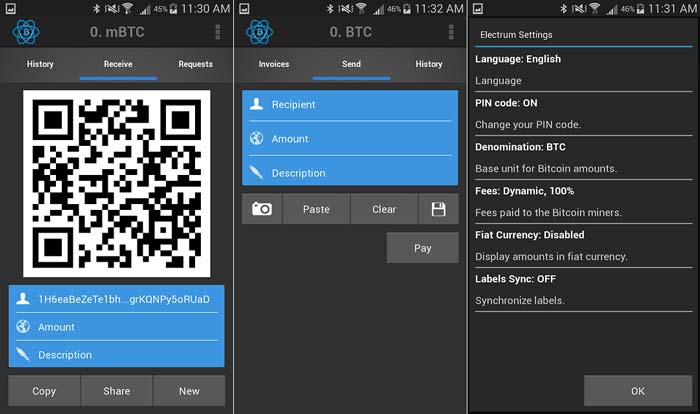
Crypto Wallet Best Practices
Selecting a good wallet is essential, however it is not enough to selecting a good wallet is not enough. It is also essential to follow some best practices in securing your hard-earned digital assets. There are a number of important safety and security practices that can help to protect your private keys and therefore protect your funds. Some of the best practices include:
Always Double-check your public address before sending funds
It’s compulsory to double check the address that you are sending any payment transaction to. There are have been cases of malicious programs integrated into user’s wallet that can edit a ‘copy and paste’ procedure in order to paste a different address that belongs to an attacker. To be sure enough, it is also recommended to send a micropayment as a verification, and then send the larger payment to the verified address.
Always use Two-factor authentication
The benefit of using two-factor authentication (2FA) can’t be overemphasized. 2FA can be done either using a third party application like the Google Authenticator and Authy apps or by adding a biometric identification or through the use of pin codes and SMS verifications. If your wallet allows for it, make sure you always use it.
Check the security signatures when accessing a website
It’s important when using a web wallet, to ensure that there is an SSL security mark in the address window of your web browser. This stands for secure site seal and ensures that your browsing is encrypted. Also, the website should begin with HTTPS, rather than HTTP and you should notice a lock sign next to the URL. This will prevent you from giving out your data willingly to attackers.
Avoid clicking unknown links from your mail
Many cases of phishing attacked have been reported. Phishing scams through Google Ads and through email are becoming more and more elaborate in the crypto world. Phishing scams, make sure email received from wallet companies have their domain spelled correctly and never look for their web address clicking on Google ads. Once you send a phishing website your private key you can say goodbye to your funds. Mistakenly sending your private data through untrusted links means your fund are close to being hijacked from you.
Avoid unnecessary updates
Application bugs downloaded from some updates can potentially create vulnerabilities into your wallet software, which could lead to massive losses for account holders. It’s best to wait 2-3 days after an update has been released to see if any bugs appear. Once the reviews by other users indicates a positive result in the use of the application, you can go ahead installing the update to your device. It’s always a good idea to turn off auto-updates for crypto-wallet applications.
Cryptocurrency Investing
MetaMask: Ethereum ERC20 Token Wallet Browser Extension Beginner’s Guide
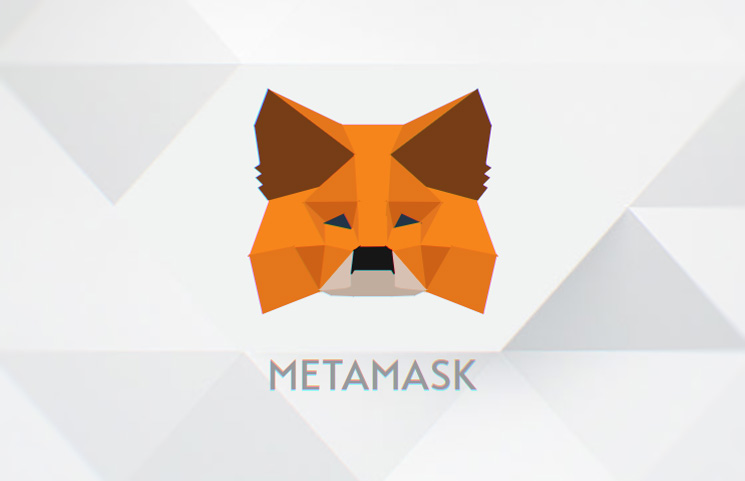
The Beginner’s Guide to MetaMask
For those new to Ethereum or perhaps even cryptocurrencies in general, the name MetaMask has probably already popped up in conversations. MetaMask is essentially a browser extension, and acts both as a wallet and access point to the Ethereum network. Explained even simpler, MetaMask is a hot wallet.
On the blockchain cryptocurrency networks, users can opt for a hot wallet (“live” or actively connected to the network) or a cold wallet (disconnected from the network). A wallet is necessary to store personal altcoins off exchanges or anywhere else after trading or transacting.
Although many early exchanges act as a bank for digital traders, current wisdom dictates that users maintain their funds offsite. In addition, a user will very often need to fund a trading account from a wallet, as many don’t allow for fiat or legacy payment protocols.
There are pros and cons to both, and current trends see most users employing the duo as their needs dictate. A hot wallet can be accessed and pilfered through phishing or user error, whereas a cold wallet is dead to the network, allowing no access at all. A cold wallet is also sometimes called a vault, as it’s silent, secure and access-restricted.
Many users will encounter the name when looking at ICOs, because ICOs are dominated by the ERC-20 token protocol. ERC-20 is a “type” of token, developed and employed on the Ethereum network, that has proven the most malleable and compatible token structure for crowdfunding purposes. The vast majority of ICOs, while employing their “own” tokens, are actually building those tokens out of the ERC-20 protocol.
MetaMask Details

Looking at a few nuances of the wallet, since it is an organic build from the Ethereum network, the MetaMask wallet will only hold ETH coins and other ERC-20 tokens of whatever origin. Bitcoin, for example, cannot be held in a MetaMask wallet.
The other major component of MetaMask is that it is a gateway to the Ethereum network. What this means is that all of the network’s dapps are available to use for MetaMask wallet holders. Dapps are “decentralized apps” and so named because their backend code is running on a decentralized network, in this case the Ethereum network.
If dapps seem obscure, examples would be the game Cryptokitties or casinos like Etheroll, a marketplace like OpenSea and of course digital exchanges like ForkDelta and IDEX.
Without a middleman like MetaMask, a PC’s browser can’t access the Ethereum network. Not unless a user runs a “full node” and installs the whole 400GB Ethereum blockchain on their PC.
The reason why MetaMask is known as a browser extension is because MetaMask injects a javascript library in your browser page. The javascript is called web3.js and written by the Ethereum development team.
Installation and Setup Of MetaMask

MetaMask is “open source,” which means anyone can view the code on GitHub. Currently, MetaMask functions on the FireFox, Chrome, Brave and Opera browsers. Links to MetaMask extensions for all relevant browsers are readily available on the MetaMask homepage. Once installed, the MetaMask logo will appear in the top right of the screen. Chrome, for one, will typically ask you to enable an extension, but these steps are all linked and users are done with a MetaMask installation in a minute or two.
Users don’t require a username when registering a MetaMask wallet, only a password. With MetaMask, a user’s password is called a “DEN.” although a clever play on words, since the logo is a fox’s face, although this appears to be more coincidence than any deliberate naming.
After creating a password, users are issued with a unique 12-word “seed phrase.” This is a bunch of words employed to safeguard a user’s account. It’s recommended that users stash their seed words in a competent password keeper like LastPass, or similar apps. Users can also generate multiple MetaMask accounts. Every account created by a user with MetaMask will share seed words and the password, but will have a different address.
Transacting With MetaMask

Paying someone or otherwise dispatching tokens from the MetaMask wallet is a simple matter. A single click on “Send” allows users to populate the subsequent screen with a user address. Send the funds and the transaction is done, and users receive a confirmation once the transaction is completed.
When interacting with dapps using MetaMask, provided a user is logged into their MetaMask account, they can access Ethereum network dapps automatically through their browser. Logging into a dapp like OpenSea, for example, the decentralized outlet for crypto collectibles, the dapp notes a user’s MetaMask address. There is no need to log into dapps separately, as the network has user intel integrated, recognizing an account holder wherever they go on the Ethereum blockchain.
MetaMask is free to use, users paying only the “gas” cost – the base cost of transacting on the Ethereum network. Gas is the fee required to effect any transaction on the Ethereum network. It is denominated in “Gwei,” one billionth of an ETH. Looking at overall UX, MetaMask is a reputable offering, with good support and a welcome absence of any dark press.
Protecting Your MetaMask Account
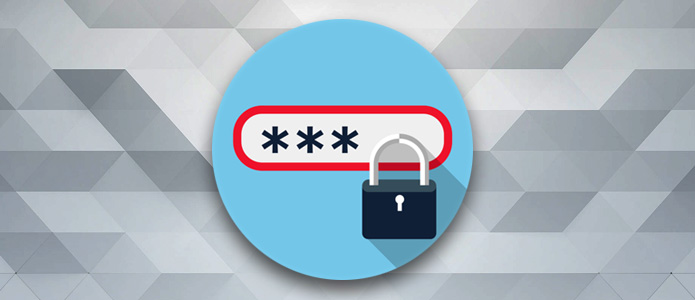
How Safe is MetaMask? In the world of cryptocurrencies, security is top of the list. Constant hacks and successful phishing attempts keep making the papers, while legislators are still battling to bring regulation up to the same level as legacy fintech. Since cryptocurrency thefts cannot be undone by identifying the thief and reclaiming funds, users should always have security uppermost in their minds when employing their MetaMask wallet.
It is advised to log out of a MetaMask account when it’s not being used. When a user is logged in, the account is considered “unlocked” and more vulnerable than when shut down. Open MetaMask accounts enable crooks to glean a user’s wallet address, token types, the wallet balance and especially transaction history.
Don’t be fooled into thinking that phishing can only happen via mail, however. Users should be aware of suspicious pop-ups or other notifications while signed into their wallet, as this can also be indicative of a phishing attempt.
Things like irregular pop-ups that ask a user to sign for a pending transactions are high risk. So too are messages telling users that their last transaction failed, then rerouting the repeat transaction to a different address. Much like cyber criminals emulate bank UIs and present with all the right logos and all the right colors in place, so too have there been instances of phony interfaces emerging.
For the best secure arrangement, users would employ a cold wallet like Ledger or Trezor Model T. For human reassurance, keeping the bulk of one’s altcoin holdings in a cold wallet can’t be beaten. That said, MetaMask has never suffered a hack nor had other instances of bad, sad press around lost funds and theft. To date, the wallet is impervious, and user losses stem from phishing attacks for which MetaMask can’t be blamed.
MetaMask Conclusion
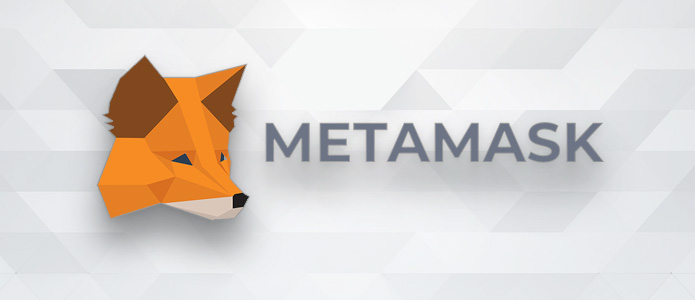
MetaMask is elegantly simple and easy to use. The wallet-stroke-network enabler has become the most popular and convenient route to navigating, paying and trading on the Ethereum network. Standing back and looking at the offer as a non-technical or, rather, non-crypto person might, as an offer it’s very simple and easy to install.
Even newcomers can quickly grasp the essence of it and get on with interacting on the Ethereum blockchain. MetaMask is intuitive and has been elegantly simplified because of its homegrown Ethereum nature. Any hot wallet, however, carries a higher risk than any cold wallet, and users should always have caution in mind when transacting via the wallet.
You can read more about MetaMask here: metamask.io
Cryptocurrency Investing
Top 6 Cryptocurrency Exchanges Using Own Coins For Reduced Fees

Best Cryptocurrency Coins Which Grant Dividend Or Reduced Fees In 2018
The cryptocurrency space has gained incredible momentum in the last few months. This is fueled especially by the existence of coins that not only earn dividends for the owners but also earn passive income while at the same time offering very low transaction fees.
Table Of Contents
6 cryptocurrency exchange coins and tokens that make money in the Crypto sphere are discussed below in detail.
KCS is a native token owned by KuCoin Cryptocurrency Exchange which is based out of Hong Kong. A total of 100 Million tokens of KCS were distributed during the KuCoin Initial Coin Offering (ICO) in 2017. KCS tokens are fundamentally ERC 20 tokens. The current value per token of KCS is US$ 4.78 and the market capitalization is approximately US$ 435 Million.
Holding KCS tokens is extremely advantageous for both Holders and traders. KuCoin Shares have a reward ratio for the holders. 10% goes to KuCoin, 50% goes to the KCS holder and 40% belongs to the referred individual. 10% of the Exchange`s profits are used in buying back the KCS and then burning the tokens. This means that KCS holders are further rewarded due to the appreciating prices.
Furthermore, Owners of KCS receive 50% reduction of the platform`s trading fees on all the volumes in the Exchange. Due to the referral system at the KuCoin Cryptocurrency Exchange, owners of KCS receive higher passive income.

Binance (BNB) Token
BNB is a native coin that is owned by Binance, which is one of the best cryptocurrency exchanges in the current Crypto market. Binance exchange was developed in China but relocated to Japan in September 2017. BNB has a current market value of US$ 11.82 and a market capitalization of US$ 1.3 Billion.
BNB is also an ERC 20 token with a fixed supply of 200 Million. During the Initial Coin Offering (ICO) in 2017, the BNB token was generated to fund the development of Binance Exchange. Owners of BNB token use it to pay for fees on the Exchange`s platform. These fees include withdrawal fees, Listing fees, Exchange fees and any other applicable fees.
Binance buys back 20% of BNB tokens in every quarter which the Exchange then burns until the total circulation reaches 100 Million. For holders of BNB, the total cost of trading at the platform is reduced by 50%. The owners of BNB also receive regular dividends when the BNB tokens are regularly burnt every quarter till the total supply goes back to 100 Million. The increased daily volumes at the Exchange further increase the benefits by providing an increased passive income.
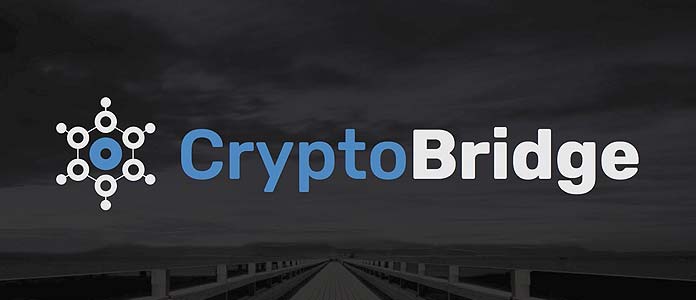
CryptoBridge (BCO) Coin
BCO is a native crypt-compatible coin created in July 2017. It is owned by the Decentralized Cryptocurrency Exchange (DEX) called CryptoBridge Dex which allows trading of most of the popular Altcoins. This Exchange utilizes the multi-signature federated gateway.
BCO coin is mineble and unlike KCS and BNB, it is not an ERC20 coin. BCO Coin has a current market value of US$ 1.64 and a market capitalization of US$ 45Million. Holders of BCO get 50% of the share bonus earnings of CryptoBridge Exchange when they stake their BCO coins.
For 3 months they receive 20% bonus, for 6 months they receive 50% bonus and for 12 months they receive 100% bonus. However, staking their coins for 1 month yields 0% bonus.
COSS Token
COSS is an ERC20 token that is owned by COSS Cryptocurrency Exchange located in Singapore. COSS exchange has matching features like Binance and KuCoin Exchanges. The Exchange is unique since it embraces plans of being a USD Exchange as well as payment processor.
The current market value of the COSS token is US$ 0.29 with a market capitalization of US$ 23 Million. The COSS Exchange retains and validates all the transactions that are initiated at the platform on the Ethereum Blockchain.
COSS has a great dividend program. The holders of the coin are paid 50% of the total earnings from the Exchange trading fees on a weekly basis. Additionally, holders can store their coins at the COSS Exchange platform or at an ERC20 enabled wallet such as MyEtherWallet.
CEFS token is another dividend earning token that is owned by the Cryptopia Exchange which is one of the most popular digital Exchanges trading numerous Altcoins. Cryptopia is headquartered in New Zealand.
CryptopiaFeesShares are very expensive and rare. The current market value is US$ 1,816 per token with a total supply of 6300 CEFS. The Cryptopia mining platform for cryptocurrencies is well streamlined and easy to use.
The holders of CEFS Token receive 4.5% of the monthly earnings from Cryptopia platform which is then distributed proportionately as per the CEFS holdings. Holding the token for longer periods leads to more returns.
Bibox (BIX) Token
BIX is a native token that is owned by the Bibox Exchange, an all enhanced-encrypted Exchange which was founded in China. It also has similar features like Binance. This exchange enables traders to trade numerous Altcoins. The exchange supports different languages like English, Chinese, Korean, Mandarin, Vietnamese and Russian. The Exchange is also unique since it has the capacity to trade cryptocurrencies while utilizing Fiat currency within the same medium.
The current market value of BIX is US$ 0.6 with a market capitalization of US$ 63M and a circulating supply of 105,918,066 BIX. The tokens are bought back and burnt regularly until the total supply reaches 271 Million.
Holders of BIX receive rewards in the form of fee reduction. BIX tokens have various uses especially in paying for the Exchange`s fees like Exchange fees, Listing fees and Withdrawal fees. The discount rates for using BIX are as follows: 50% in year one, 25% in year two, 12.5% in year three, 6.25% in year four and 0% in year five.
Our Final Thoughts
Conclusively, the best coin or token depends on the goal of an individual. For instance, an individual who is actively involved in trading is better suited to possess the BNB token while an individual whose purpose is passive income, then KCS is ideal. High volumes of the trading Exchanges will mean more dividends while the costs in trading and the referral systems will mean more passive income.
Cryptocurrency Investing
Top 5 Most Common Bitcoin & Cryptocurrency Scams in 2018

Cryptocurrencies have become a bit of hot cake. On one hand, lots of people are getting in and making a lot of money. Others are getting burned and losing their life savings in a bid to play in the markets and make a killing.
Most of those who do often invest in cryptos known as scam coins. These cryptocurrencies are designed to rip off people, and solely benefit their creators.
But because most newbies have no idea of how to identify the real moneymakers from the scams, many get burned, losing a lot of money in the process. This article is contains information on the more common cryptocurrency scams, show you how to identify them, and more importantly, teach you how to protect yourself, so you don’t get ripped off.
Types Of Cryptocurrency Scams
1. Cloud Mining Pools

Please understand that there are some legitimate cloud mining services out there. So, not all of them are bad. That said, this is one of the more common ways people lose their money.
These companies attract people who want to go into cryptocurrency mining, but have neither the time nor the money to buy and maintain their own cryptocurrency miners. So, these companies offer to help them mine, in exchange for a fee and a promise of the profits.
To identify the legit operations from the fraudulent ones, look for their registrants, company team lead and location. A major red flag is if you cannot find direct details when you do a whois lookup of their domain name.
But that alone isn’t enough. Look for transparency in terms of who runs what. Legitimate cloud mining services will have either their whois details available and/or information on the team managing the service.
Also be wary of companies registered in the US or UK, but with all team members resident abroad. If you cannot find a local address that’s verifiable, you might want to keep your money as that’s another red flag.
2. MLM Cryptocurrency Organizations

These are popping up all over the place and promising to make people instant millionaires. All participants have to do is get more people on board to invest in a specific cryptocurrency or a proxy project and they’ll profit from it.
The reality is that while there are legit multilevel marketing schemes, many of these crypto based MLM programs have no tangible product or service to sell. If the only thing they’re selling is a pyramid scheme, run and don’t look back.
3. Bogus Initial Coin Offerings (ICOs)

More and more people are realizing that they can make a lot of money from initial coin offerings. These people are taking advantage of the unregulated nature of the crypto space and the ease of creating tokens to launch ICOs.
In fact, it is estimated that over $1 billion has been invested in ICOs in the last 6-12 months, with many being unrealistic or downright fraudulent.
Unfortunately, many of these scammers are becoming more savvy and cleaning up their act by presenting a legitimate front –often with roadmaps, white papers, detailed information about their “projects” and other trappings that make their campaigns look legit. So, while it’s getting more difficult to spot the fake ICOs, it’s not impossible.
For starters, research thee company itself. If it’s been in business and has a good reputation, then you have a winner. If it’s new, has no reputation, and isn’t transparent about its processes, team or location, close that tab and keep looking.
Also, look at their management team and research them. Always go for those with well known and reputable team members. And if their promise or project sounds too good to be true, chances are it is.
4. Crypto Investment Packages

These are primarily bitcoin based and more formally known as bitcoin investment packages (BIPs). These are similar to cloud mining in the sense that they promise daily returns which are usually smaller percentages of your investment.
They often start out well to gain your trust, and then one day, disappear. This is another pyramid scheme designed to fleece you of your hard earned money. Users tend to fall for it by reinvesting their funds only to have their returns and payments gradually slow down and stop coming in altogether.
For these packages, we’ll say just walk away completely. And if you want to do this, just understand that it’s a short term Ponzi scheme and go in with your eyes open. For best results, get in at the very early stage, make your money, and cash out.
5. Pump and Dumps

These are projects created by individuals or consortium's for the sole purpose of driving the price wall up, and then cashing out once it reaches a predetermined price.
When you see cryptocurrency prices going up for no reason whatsoever, know that it’s a pump and dump in the making. If you want to partake, just make sure to get in early, enjoy the ride and cash out quickly. However, we don’t recommend investing in schemes like this at all.
There are communities that are solely dedicated to this. The go in and buy huge quantities of a certain cryptocurrency, watch the price artificially inflated and others get on board, then dump the coins after making a lot of money.
How To Protect Yourself From These Cryptocurrency Scams

There’s one simple thing to look for, and that is the use of cryptocurrency. Always lookout for the following when looking to invest in a cryptocurrency:
- An active community
- A development team dedicated to the project
- Transparency from the company
- Valid viable use case that solves actual problems
- History
Always research a cryptocurrency before investing in it. A simple search string like “[intended cryptocurrency] daily reddit” will be enough to show if they are legit or not. Also look for mentions in major news outlets, visible team leads with a track record of results in and/or outside the industry and backers.



